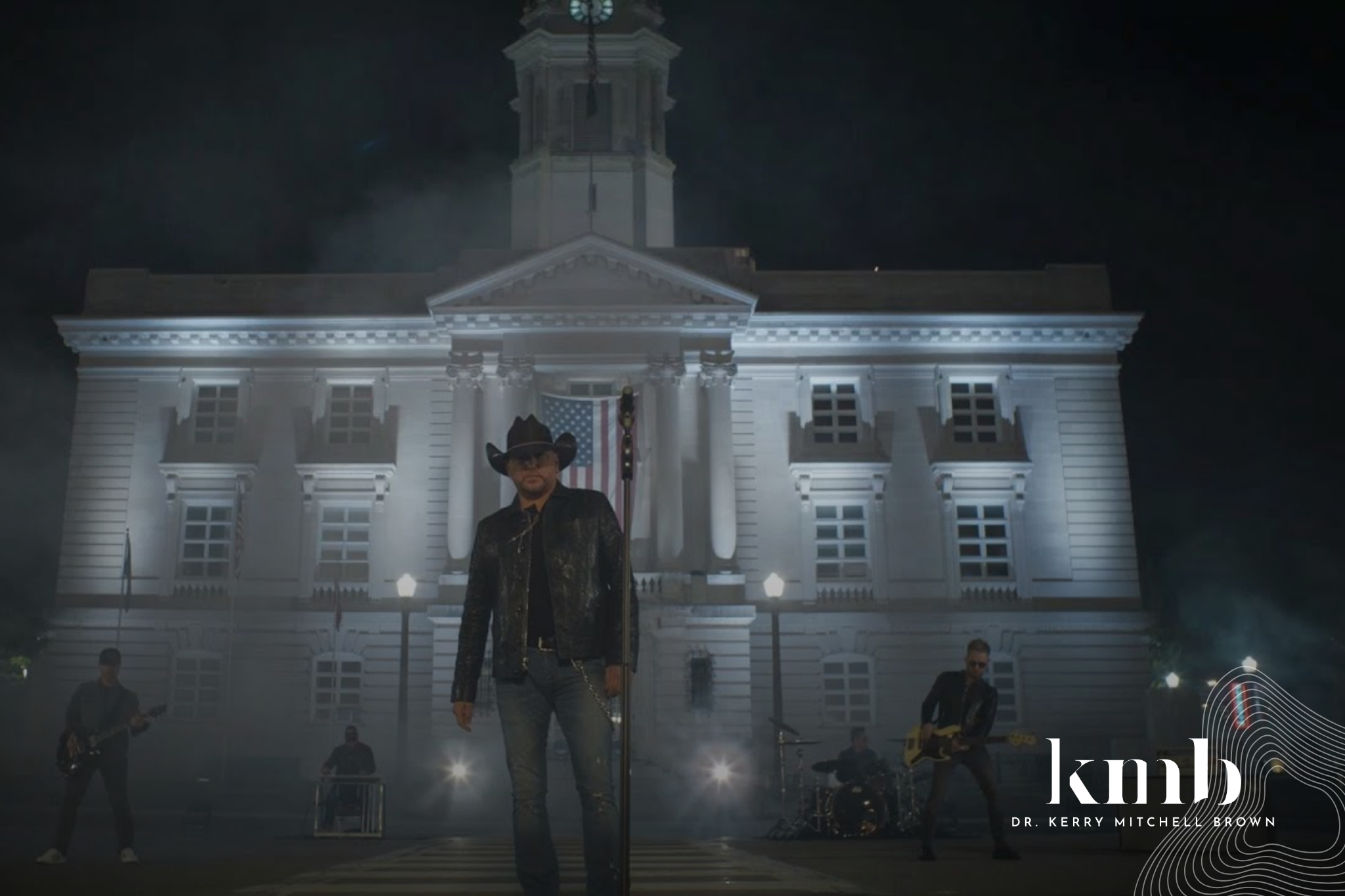Music has always been a mirror to societal values, often capturing the essence of cultural and political movements. However, it can also perpetuate harmful ideologies under the guise of tradition and nostalgia. Jason Aldean’s controversial song, “Try That In A Small Town,” serves as a stark reminder of this dynamic, intertwining small-town romanticism with the deep-seated history of systemic racism in America.
The Legacy of Sundown Towns
The idyllic portrayal of small-town life in Aldean’s song ignores a painful truth: the legacy of sundown towns in America. These were communities that excluded non-white individuals, often violently enforcing a “no Blacks after dark” rule. While sundown towns may seem like a relic of the past, their influence persists, shaping the racial and cultural dynamics of many rural areas today.
Right-wing media outlets often downplay or dismiss the systemic racism inherent in these histories, presenting them as isolated incidents rather than acknowledging their structural roots. This denial hinders meaningful conversations about equity and belonging.
How “Try That In A Small Town” Perpetuates Harm
The song’s nostalgic framing and celebration of traditional values evoke a longing for a time and place where societal norms were far from inclusive. By romanticizing small-town homogeneity, it paints a picture that excludes the experiences and realities of marginalized groups. This narrative perpetuates myths that racism is confined to urban centers and overlooks the ongoing racial challenges in rural America.
- Code for Exclusion: Terms like “traditional values” often become coded language for upholding systems that marginalize people of color. This framing reinforces the notion that small-town life is synonymous with “real” American values, dismissing the diversity that defines the nation.
- Resistance to Change: The song’s cautionary tone can be interpreted as a warning against challenging established norms. For some, this resistance stems from fear—fear of losing cultural dominance and the status quo.
Why This Matters
Music wields immense power in shaping public perception. Songs like “Try That In A Small Town” contribute to collective understandings of race and community, often glossing over systemic issues while reinforcing exclusionary ideologies. They serve as cultural touchstones that either challenge or uphold inequities.
A Call to Action
Countering these narratives requires intentionality from artists, media, and audiences alike:
- Artists: Use your platform to create music that fosters empathy and inclusion. Acknowledge the full breadth of American experiences, especially those of marginalized communities.
- Media: Amplify diverse voices and ensure that discussions about songs like Aldean’s address their cultural and historical implications.
- Audiences: Be critical consumers of music. Reflect on the messages embedded in your favorite songs and challenge narratives that romanticize exclusion.
Reimagining Small-Town America
It is possible to celebrate the values of community and connection without erasing the experiences of those who have been historically excluded. By engaging in honest conversations about the legacy of sundown towns and systemic racism, we can work toward a more inclusive and equitable understanding of small-town life.
The power of music lies in its ability to inspire change. Let’s use it to amplify narratives that bring us closer together rather than pull us apart.

